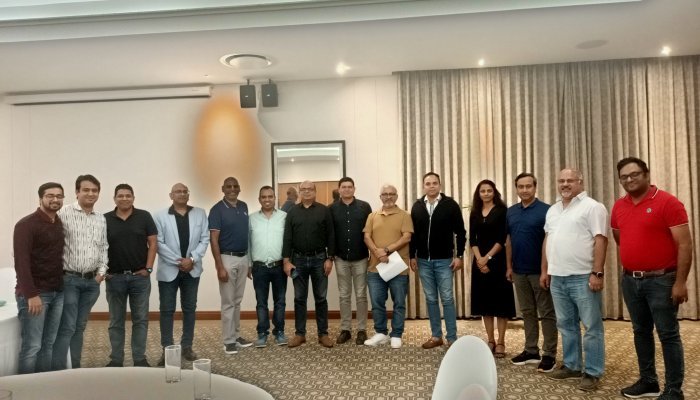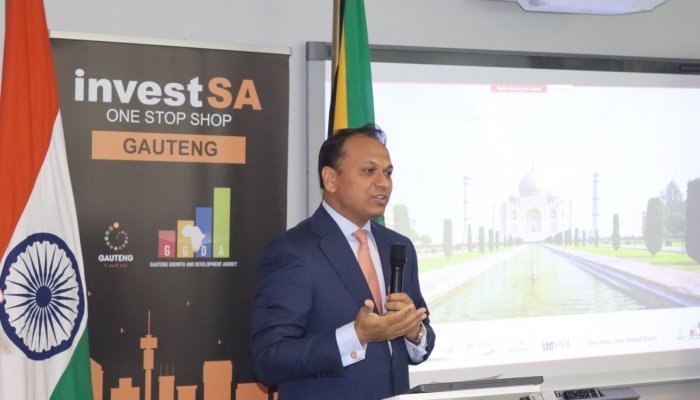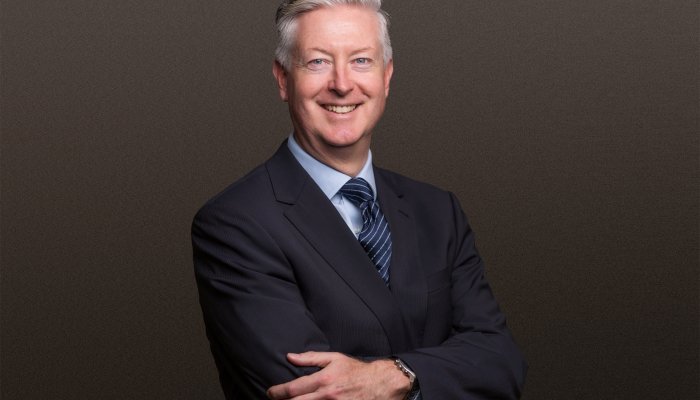Nihar Patnaik is both CEO of pharmaceutical researcher and manufacturer Hetero Drugs South Africa and, for the next year, president of the Confederation of Indian Industry (CII) India Business Forum South Africa (IBF-SA). The IBF-SA is an exclusive group offering support and assistance to Indian corporates and investors operating – or wishing to operate – in South Africa. It’s a group that is both aware of the challenges of doing business in South Africa, but also awake to the possibilities.
Patnaik is passionate about his industry, and about the potential for the two countries to continue growing together. Having spent around two decades in South Africa, he says, “I’m very happy. The country has given me everything and I’ve given my everything.”
Paying this forward in the form of skills transfer and job creation is something Indian companies can offer South Africa, he believes, while at the same time benefitting from South Africa’s high-level support services, notably around legal and patent know-how.
From India’s side, the potential lies not just in the South African market but as a logistics hub into the rest of Africa. Hetero, for instance, opened a bonded warehouse in partnership with Imperial Health Sciences in 2018 and recorded R220 million in exports into sub-Saharan Africa last year.
This move aligns Hetero with a strong Indian export presence across Africa. Indian companies such as the multi-tendrilled Larsen & Toubro (L&T), laboratory equipment manufacturer Glassco, and radiography specialists Allengers Medical Systems Africa are notable exporters of medical equipment and devices into South Africa and other African markets. According to Volza data, India is the world’s largest exporter of medical packaging and equipment globally and shipments from India to South Africa last year until November 2023 stood at 1 868 units.
Like Hetero, many of these India-headquartered companies go about their business without too much fanfare – yet they make an indelible mark on the health and well-being of South Africans.
A dominant HIV drug maker
If Hetero produced over-the-counter drugs, then there might be more brand recognition in the local market, admits Patnaik. However, the company’s focus is prescription medicines, specifically HIV drugs.
“We have the full range of affordable HIV drugs, which are accessible to poorer people,” explains Patnaik, noting that this vision started almost 32 years ago when scientist and Hetero founder Dr B Partha Saradhi Reddy decided to focus on “research in the area of HIV and started developing the medicines with the support of other innovative companies”.
Today, Hetero supplies some 145 countries with HIV medication, often through grants from the likes of UNAids. The South African government, explains Patnaik, buys its own HIV medications and supplies them directly to patients.
Hetero began operating in South Africa in 2008-09. Having built in a five-year scenario to better understand the local market, supply-chain challenges and manufacturing capabilities, Hetero won its first government tender in 2019. At the end of 2024 the drug maker expects to start working with a small European Union-approved plant in Pretoria as part of another five-year plan to eventually manufacture in South Africa.
This type of investment highlights the importance of the South African market to the company’s long-term thinking. As Patnaik explains, “If you look at the size of the latest tender in South Africa, that is R20 billion for HIV medications over a three-year period.” This equates to around R6.6 billion for the country’s HIV drug needs in a single year, which is fulfilled by various suppliers, including Hetero.
“Of the R20 billion, we have approximately 23% of the supply and today – the financial year ending March 2024 – we closed the business with R1.6 billion,” says Patnaik, stressing Hetero’s role as partner and supplier to the state.
This support was particularly evident during Covid-19 when concerns that logistics delays might affect HIV medication availability led the Department of Health to ramp up its order. To meet this demand, Hetero chartered planes and delivered one million packs of HIV medication for seven months in a row, up from the usual 20 000.
“It’s not just about only the price and the cost and the profit, it’s about whether you can save the life of this patient,” says Patnaik, reflecting on this time.
Hetero also supplies Covid medications such as Remdesivir as well as cancer treatments, both of which are underpinned by a strong research focus.
Going forward … together
While global and African growth is important to Indian pharmaceutical group Cipla, the South African market is regarded as a ‘second home market’.
Cipla South Africa certainly lives up to that billing in terms of the hard numbers and is, says CEO Paul Miller, “one of the largest pharmaceutical companies in South Africa by volume and third-largest by value”. However, Miller stresses that business metrics alone do not account for the company’s success in South Africa.
“We also focus on our relationships with healthcare professionals, how many new early childhood development centres we’ve opened, how many children receive nutritious meals at these schools, how many corrective surgeries for people born with a cleft condition we could facilitate, and how we’re reducing our footprint on the environment,” explains Miller.
“As a business we strive to make a difference ‘beyond the pill’ by also investing in projects to uplift local communities and we’re focusing on our environmental impact.”
Miller advocates an approach that looks beyond medicines to the people who need these life-saving drugs and therapies. Cipla also encourages partnerships and collaborations.
“There’s an African proverb that states: ‘If you want to go fast, go alone. If you want to go far, go together,’” says Miller. “We believe that the whole is greater than the sum of its parts. Smart partnerships unlock value for all and drive sustainability and scalability. By harnessing the power of partnerships – through like-minded corporates, donors, and people in local communities – we empower individuals and their communities to inspire social change and strengthen the fabric of society.”
This commitment is evident, says Miller, in the investments Cipla has made into South Africa over time, notably building local manufacturing capacity. “We have manufacturing plants in Durban and Benoni, and have upgraded these facilities over the years to ensure improved efficiency,” he explains. This includes recent upgrades to install 1 117 solar panels on the Cipla Distribution Gateway roof in Cape Town.
While Miller acknowledges that there are always economic and social challenges to overcome in any environment, he believes in South Africa it is key to remain resilient and agile.







